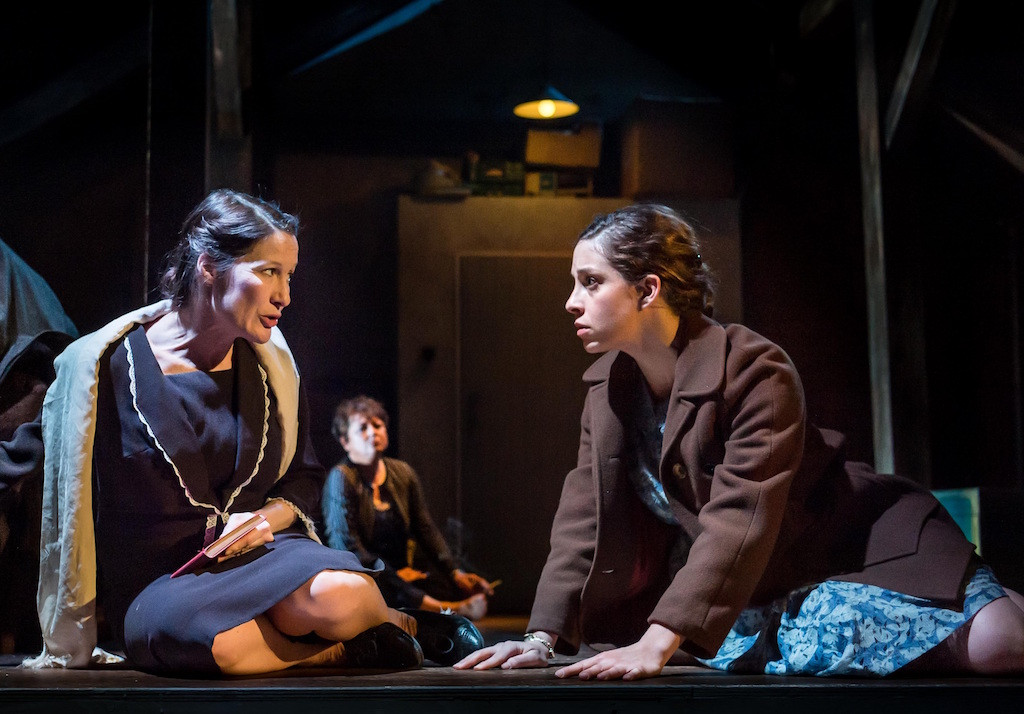A collaboration between the Théâtres de la Ville de Luxembourg and the Queen’s Theatre Hornchurch (where it received its premier earlier this month), “Kindertransport” is a production to which audiences on both sides of the Channel can relate.
Directed by Anne Simon, it is perhaps her most commercial project to date. The play, which dates from 1993, has been widely performed all over the world and even adapted for BBC Radio 4. That is not to say that the director has lost her edge or keen eye for intriguing and innovative staging, nor that “Kindertransport” is an easy play.
As the title suggests, at its heart is the Kindertransport programme that allowed thousands of Jewish children to escape the impending Holocaust by travelling, without their parents, to Britain between December 1938 and the outbreak of WWII in September 1939. Important though this historical event is, it is here used to explore many more universal themes. How humans deal with trauma and separation, how we adapt to being thrust into new situations, the fundamental bond between mother and daughter, the acceptance of strangers and dealing with the consequences of the choices we make.
“Kindertransport” is very much a British-Luxembourg production. As well as Simon it features Luxembourg actress Leila Schaus and set designer Marie-Luce Theis.
Schaus plays the central role of Eva, who we first meet in 1939 as a 9-year old Jewish girl in Hamburg about to be sent to England by her mother (played by German actress Catherine Janke, who is also a regular on stage in the grand duchy). Meanwhile, half a century later in England, young woman Faith (Hannah Bristow) is at loggerheads with her mother Evelyn (Suzan Sylvester) as she prepares to move out of the family home. Grandmother Lil (Jenny Lee) intervenes, but when Faith discovers a box of letters and keepsakes her world is turned upside down.
Seamless merging
Theis’s brilliant set design is crucial to the success of the production. Serving as an attic, various railway stations and a port, as well as the interior of a train, it allows Simon, using clever and fluid choreography, to seamlessly merge the two time periods and scenes played out in the imagination of the characters. Ominously, the beams also form what could be a gallows looming above the players. The actors, too, play their part as they switch effortlessly across time and space, sometimes even observing action from the other age with compassion and consternation. Traumatic as the story is, light relief is provided in spades and especially when Matthew Brown appears on stage in various guises.
Schaus is charismatic at the centre of the piece, superb at capturing the innocence and fear of the 9-year old Eva, who has an unhealthy obsession with the “Ratcatcher” story, and later the growing confidence of the teenager and young woman who has to, at different stages, confront two mothers. Her scenes with Janke are dark and menacing and, thanks to great lighting and sound design by Nic Farman, have the air of pre-war German expressionist film. But why the two actresses have to put on such strong German accents is a mystery, and perhaps the only slightly false note in the entire production.
In the Manchester attic, the acting is much more naturalistic. Bristow is a splendidly simmering firebrand. Lee is fully at ease as she catures the essence of Lil as both empathetic and sanctimonious. But Sylvester ends up stealing the show as Evelyn slowly lets her guard down, moving from cautious and protective mother through traumatised and angry victim to vulnerable daughter torn asunder.
Her story is one that is relevant today, as survivors of the Kindertransport have come out in support of Britain taking in more child refugees. And as Brexit looms, the confusion of some foreigners in the UK about their future status is addressed by Evelyn when she says she is afraid “the authorities” might require documentation to prove she arrived in England legally, even though she is naturalised.
By the end of the evening there is not a dry eye in the house, and the audience at the premier gave cast and crew a standing ovation. “Kindertransport” is simply essential viewing.
